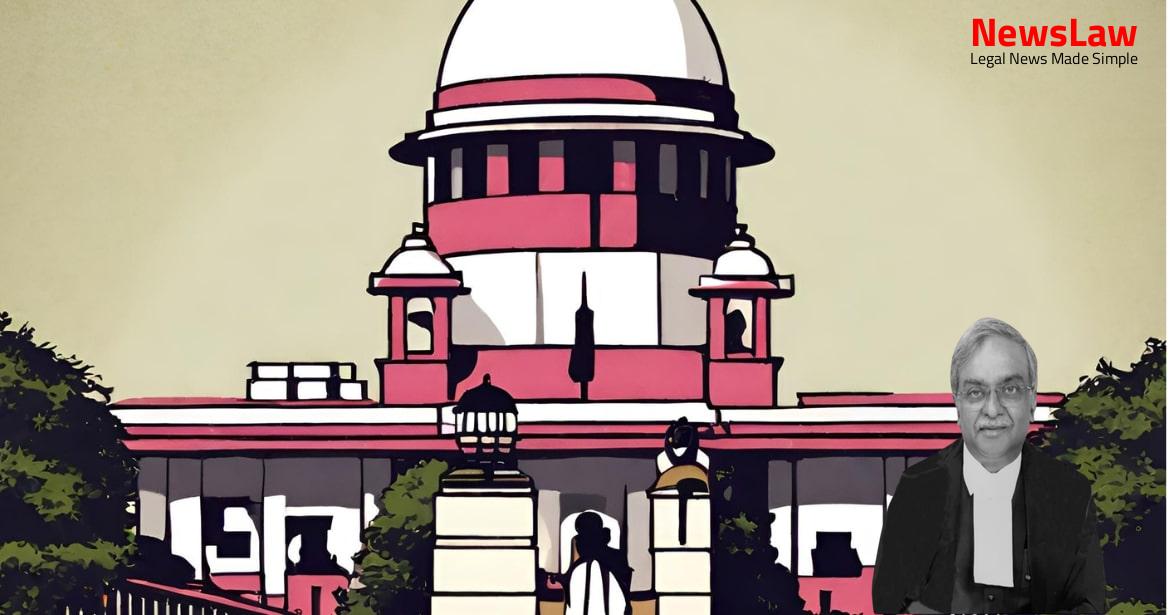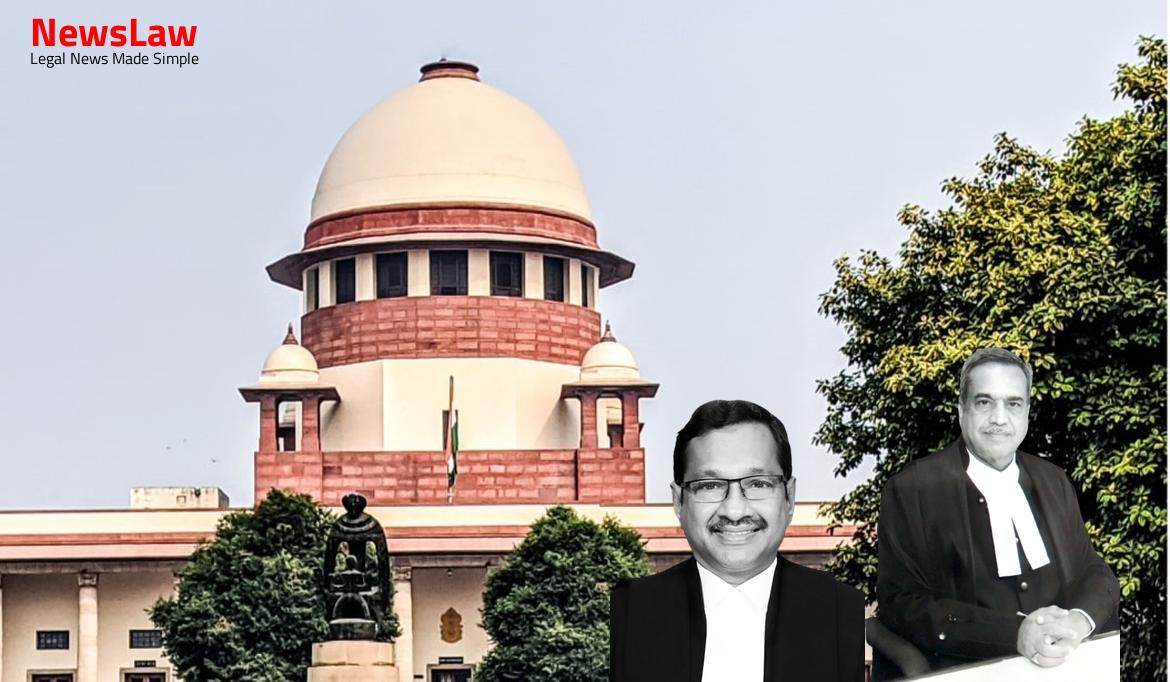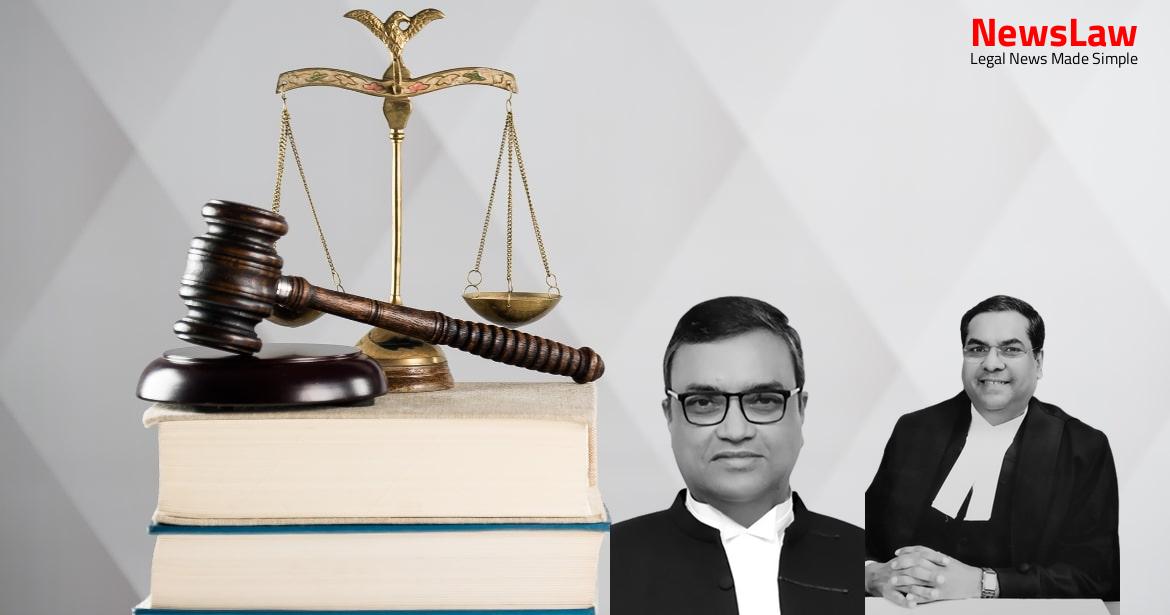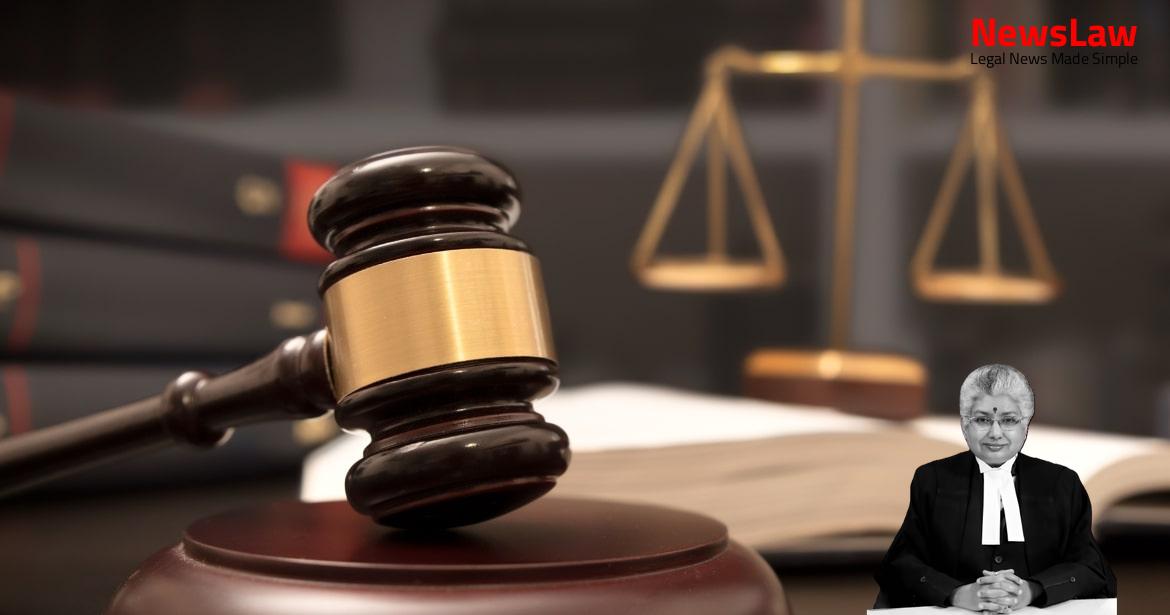In a significant legal showdown, the Supreme Court of India has made a decisive ruling in a complex land dispute case involving the State of India and Inder Singh’s son. This judgment carries far-reaching implications and sets a precedent in property rights law. Let’s delve into the details of this high-stakes legal battle and its impact on future cases in our judicial system.
Facts
- The appellant claimed that the land in suit was donated by Shri Inder Singh in 1958 for the purpose of establishing a Veterinary Hospital.
- The State constructed the Veterinary Hospital in 1958-59 after receiving the land donation.
- Shri Inder Singh, during his lifetime, never objected to the State’s occupation of the land.
- After Shri Inder Singh’s death, his son filed a suit for possession of the land in 2001, after 43 years of donation.
- The appellant argued that the suit was barred by limitation under Article 65 of the Limitation Act, 1963.
- The High Court’s findings stated that the appellant failed to establish possession over the land
- The appellant-State did not provide sufficient evidence to support adverse possession claims.
- Key details regarding possession were not adequately addressed in the appellant’s pleadings.
- The plaintiff’s suit for possession of land located in Samana, Patiala was decreed by the Trial Court.
- The Appellate Court found the suit barred by time as it was filed after more than four decades of the establishment of the Veterinary Hospital on the land in suit.
- The Appellate Court believed that the owner of the property had donated the land to the State, evidenced by the State’s possession and operation of the hospital since 1958-59.
- The Appellate Court noted that the plaintiff failed to take action despite witnessing the hospital being run over the land since 1981, indicating a transfer of ownership to the State.
- The Trial Court admitted the ownership of the plaintiffs due to the defendant’s plea of adverse possession, but there was no document proving the alleged gift of the land.
- The High Court, in the second appeal, set aside the Appellate Court’s judgment and reinstated the Trial Court’s decree in favor of the plaintiff.
Also Read: Interpretation of Drawer Liability: Company vs. Authorized Signatory
Issue
- The Trial Court framed two issues based on the pleadings.
- Issue 1: Whether the plaintiff is the owner of the suit land?
- Issue 2: If Issue 1 is proved, whether the plaintiff is entitled to a decree for possession of the suit land?
- The Trial Court decreed the suit in favor of the plaintiff based on the evidence presented.
Also Read: Land Dispute Case: Supreme Court Rules on Specific Performance and Compensation
Arguments
- Appellant, never challenged the constructions raised over the land donated for a Veterinary Hospital
- Predecessor in interest of the plaintiff-respondent donated the land for the hospital
- Sri Inder Singh was the owner in possession of the suit land
- Citing judgments in support of the submission to set aside the impugned judgment of the High Court
- (i) The impugned judgment of the High Court did not suffer from any perversity and did not warrant any interference by this Court.
- (ii) The plea of adverse possession was neither pleaded nor proved, leading the High Court to correctly set aside the judgment of the First Appellate Court which was based on the plea of adverse possession.
- (iii) The State Government cannot claim adverse possession, as supported by various judgments.
- (iv) No written deed of gift, especially a registered one, was presented by the appellants to support their claim of donation/gift by Sri Inder Singh.
- (v) The suit is not time-barred as the respondents only found out about the construction in September 2000 and promptly took legal action.
- (vi) The revenue records (Jama bandis) carried a presumption of correctness unless rebutted, which the appellants failed to do.
- (vii) The ownership rights of the respondents were established through the revenue records, which were not successfully rebutted by the appellants.
- (viii) The appeal was filed with a delay of 492 days without a satisfactory explanation, rendering it liable for dismissal on the grounds of delay.
Also Read: City Manager Selection Dispute: Upholding Rules 2014 Over Executive Order
Analysis
- Plaintiff’s vagueness in drafting the plaint, lacking essential details like the construction date of the hospital and ownership devolution.
- Defendants’ evidence, including public documents and resolutions, proved the donation of land, possession transfer, and hospital construction in 1958-59.
- State’s examination of witnesses and documents corroborated the history of the hospital’s construction and functionality since 1959.
- Plaintiff’s delay in taking action, despite knowing about the hospital, weakened the suit’s credibility and indicated awareness of the situation.
- Existence of a letter dated 24.04.1981 from the plaintiff regarding verifying the hospital’s location further emphasized plaintiff’s awareness.
- Vagueness and lack of key details in the plaint led to the conclusion that the suit was barred by limitation and should have been rejected.
- Failure to seek a declaration further weakened the suit’s validity and indicated the lack of a legal basis for possession claim.
- Evidence and documents overwhelmingly supported the defendants’ claim of donation, possession transfer, and hospital construction, dating back to 1958-59.
- The suit cannot be cleverly drafted to avoid mention of circumstances by which it is barred by law of limitation.
- Section 110 of Evidence Act states that burden of proof as to ownership lies on the person challenging ownership of the person in possession.
- In Chuharmal v. CIT case, it was summarized that the onus of proving that someone is not the owner of something they are in possession of lies on the person affirming so.
- The title to a property usually follows possession, unless proven otherwise.
- Ownership proof lies with the party claiming it, as per Section 110 of the Evidence Act.
- The hospital has been operating on the land since 1958, indicating possession.
- The burden of proof of ownership was wrongly shifted to the Appellant by the Trial Court and High Court.
- The Appellant is not required to prove ownership unless evidence to the contrary is presented.
Decision
- The appeal has been deemed allowed
- The decision in the appeal case is in favor of the appellant
- This decision overturns the previous ruling
- The appeal has been successful
Case Title: THE STATE OF PUNJAB Vs. BHAGWANTPAL SINGH ALIAS BHAGWANT SINGH (DECEASED THROUGH LRS.) (2024 INSC 518)
Case Number: C.A. No.-007379-007379 – 2024



